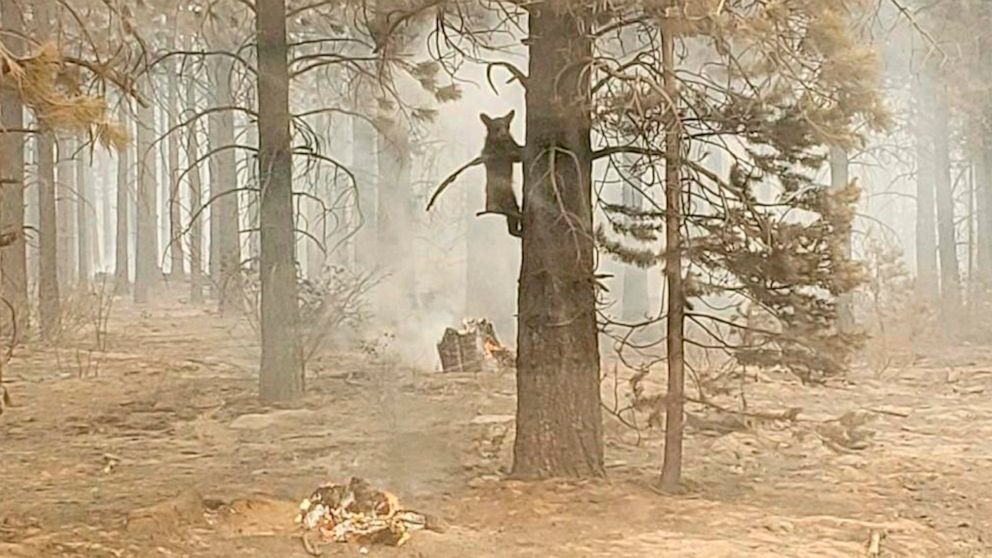Wildlife advocates urge Nevada to stop annual bear hunt due to severity of wildfires
Animal advocates are urging Nevada state officials to call off this year's annual bear hunt as wildfires continue to rage across the West.
Wildlife advocates say hunting season should be canceled as the wildfire situation is so dire that bears are undergoing forced migration, potentially throwing the social dynamics of the territorial animals off balance. Several organizations penned a letter to the Nevada Department of Wildlife Wednesday following the emergence of several "heartbreaking photographs" showing bears either injured by the fires or searching for food and water in fire-ravaged areas.
"We need to give our bears a break," Patrick Donnelly, Nevada state director at the Center for Biological Diversity, said in a statement. "Climate-fueled catastrophic fire isn't just hard on us, it's also hard on wildlife. Bears are struggling to survive and recover from the most difficult summer of their lives, and now they're going to be chased by dogs and shot to death. It's unacceptable."
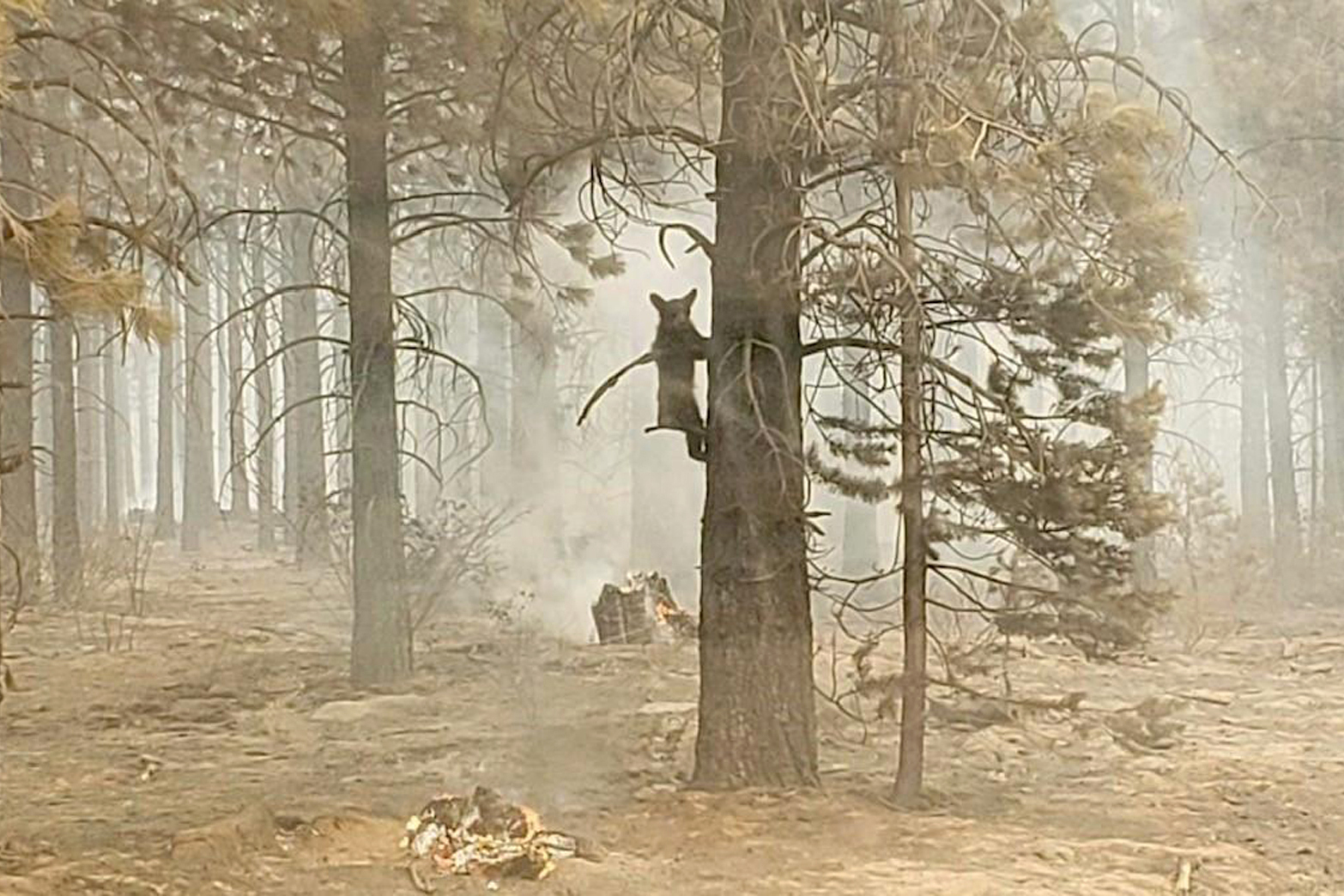
The annual bear hunt in the state typically involves packs of hounds with GPS collars that chase the bear up trees. The season is scheduled to begin on Wednesday, but eight of the 10 locations where bear hunting is permitted are in regions that have burned or are still burning, or are immediately adjacent to those areas, according to the organizations.
State law gives both the Nevada Department of Wildlife and the Nevada Board of Wildlife Commissioners emergency powers to stop hunting in units where an emergency has been declared.
"Our black bears are iconic animals, and at a time of dire need the fate of individual bears is just as important as the fate of the population," said Don Molde of the Nevada Wildlife Alliance. "Now is not the time to add additional harassment to what they've already suffered."
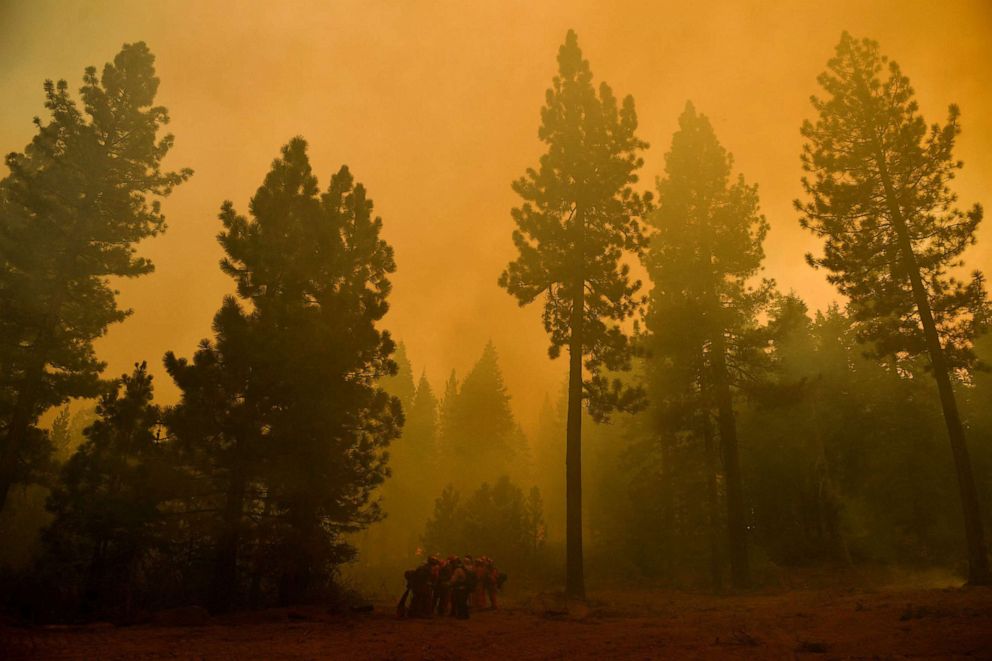
Bears in the state are also suffering from the effects of climate change, as record heat and and drought are also placing significant stress on populations. Researchers are already seeing climate change have a direct effect on mortality and reproductive failure in bears in the West, the advocates said.
"Not only should the bear hunt be suspended in fire-affected areas -- the agency and commission need to take disasters into account when setting their quotas going forward," said Jeff Dixon of the Humane Society of the United States. "For wildlife policy to be science-based, wildlife management professionals need to factor in global warming's impact on ecosystems when setting those policies."
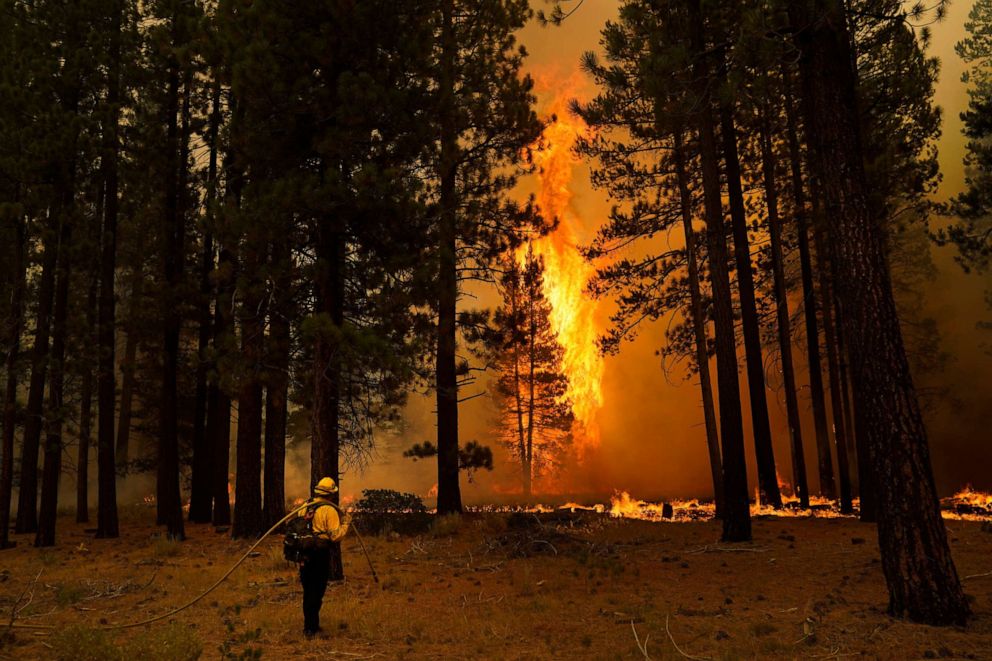
Critical fire threats were plaguing the West on Wednesday, posing the threat of new blazes to spark just as firefighters start to make significant progress in containing the existing wildfires.
Red flag warnings have been posted in several regions across the Northwest Thursday due to dry heat and gusty winds, especially over parts of the Northern Rockies and Northern California, where the Dixie and Caldor fires continue to rage.
Lightning from widely scattered thunderstorms expected in the Northwest could also combine with very dry fuels to ignite more fires in places like Oregon and Idaho.
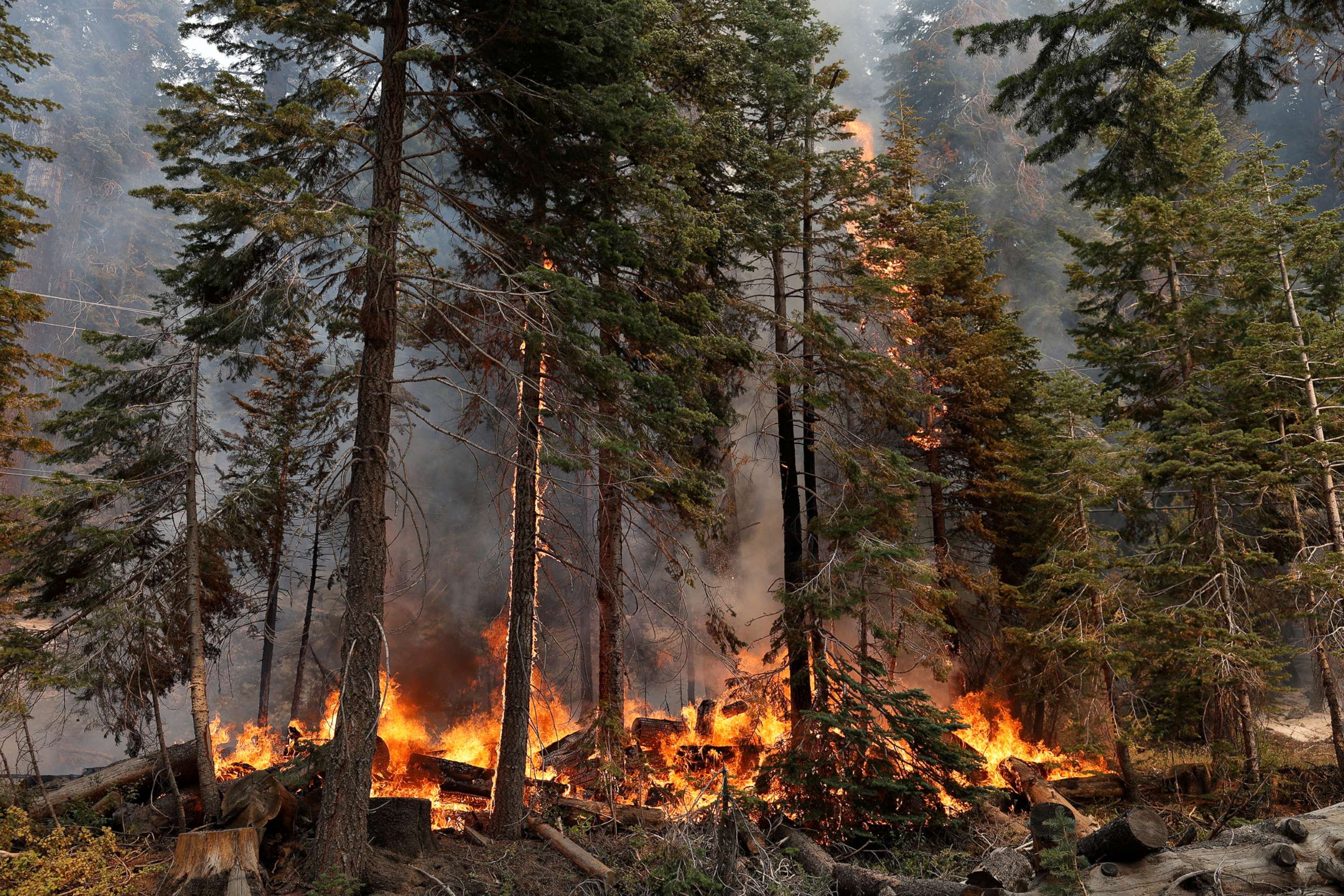
In addition to the heavy fire conditions, 29 cities were expected to break or tie their daily record high temperatures Thursday. Excessive heat warnings are in effect for parts of the Southwest, from Las Vegas to Phoenix and the California deserts, where temperatures were forecast to hit dangerous temperatures up to 115 degrees, or even 120 degrees in Death Valley.
The heat will then shift over parts of the central Rockies on Friday. Air quality alerts are also in effect over parts of the Pacific Northwest and Rockies due to the wildfire smoke.
ABC News' Brittany Borer and Melissa Griffin contributed to this report.
